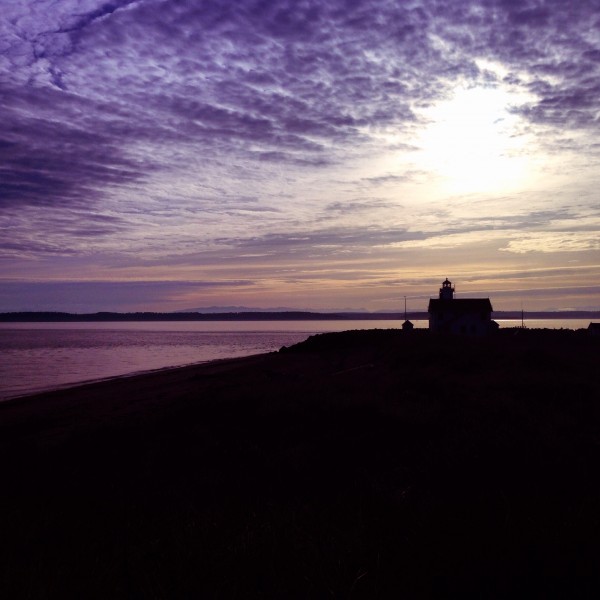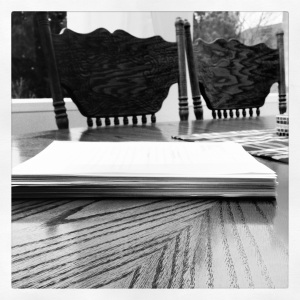I can tell you the moment I decided to be a writer when I grew up: I was six and I'd just read Louise Fitzhugh's Harriet the Spy. I wrote a bunch of stuff for years—stories, mostly—oh where did they all go? But I can't tell you when I stopped writing. I just sort of drifted away.
Junior year of high school, there was Mr. Compton, who turned around the life of a kid determined to fail of her own accord before the world could catch on how worthless she really was. He reminded me how much I loved to write and pushed me to keep at it. There was Professor Martin from English 301 in college, who handed back a paper with a long note at the end that basically said, "You're an outstanding writer. I wish you hadn't switched your major." (Yeah, Doc Martin, me too. Psychology was worthless, but someone convinced me along the way that I'd never get a job as an English major. Not that I got one with Psychology, either. I sure as hell would have learned more had I stuck with English.) Yet somehow by thirty, the only writing I'd done for years was in my journal.
I'd never stopped reading, of course, but I hadn't sought out literature in any meaningful fashion—I read whatever came my way: highbrow, lowbrow, and all sorts of stuff in between.
But then, late in the 1990s and early 2000s, as I was zooming up the slope of a career I clung to until we chucked it all and moved to New Zealand in 2006, a handful of contemporary literary fiction nudged me toward a different path. In 2003, it was Wallace Stegner's classic deconstruction of marriage, Crossing to Safety (1987); 2001 introduced me to Jhumpa Lahiri and her transcendent short story collection, Interpreter of Maladies (1999); a bout with the flu late 2000 put David Guterson's atmospheric slow burn Snow Falling on Cedars (1995) into my hands.
Plainsong by Kent Haruf, which I read the year it was published (1999), was the first of these transformative reads. Its prose is so powerful, its narrative profound; I was astonished that anything so quiet could pack such a solar plexus punch.
These works knocked something loose inside of me. They changed the way I read and changed the way I thought about writing. These novels and stories continued the preparation and education of my heart and mind, which had started decades earlier with Harriet the Spy, for the time when I would finally decide that every other ambition had to go.
Kent Haruf visited the University of Illinois at Urbana-Champaign—where I worked—to read from and discuss his new novel. He signed my copy of Plainsong. I wish I had a clever anecdote, something that I learned about writing just from being in the presence of so gifted and hard-working a man, but I recall only that the author was gracious, gentle, soft-spoken, and full of quiet dignity, just like his books.
From my own review of his novel, Benediction:
'Kent Haruf is a master of the understatement. He is a sublime observer, less a storyteller than a whispering carney offering glimpses into the circus of life. His narratives are quiet, moving to a gentle rhythm. At first glance, they can seem as dry and simple as the flat, square towns on Colorado’s eastern border where his stories are set. You think you have taken it all in, standing there on the edge by the feed store, looking straight down 6th avenue to the water tower that rises like at sentinel on the other end of town. But you must look beyond what you see to discover what is really there . . . Haruf rarely grants redemption to his characters, just as life itself doles out redemption in meager dribs, offering only enough grace to keep us going until our time is played out.'
Last week, Kent Haruf's time played its last notes. But the quiet strength of his gracious prose will continue. Our Souls at Night, the novel he was editing when he died, will be published in 2015.
Earlier this fall, Granta published an essay by Kent Haruf as part of its series The Making of a Writer. Read it, please, it's lovely. Ironically, I captured the link in an obituary in The Guardian: Kent Haruf, 'a great writer and a great man,' dies at age 71 I'm thrilled a British paper memorialized this American treasure; he wasn't well enough known in the United States, which perhaps suited him just fine.
Thank you, Kent Haruf. Rest in peace.








